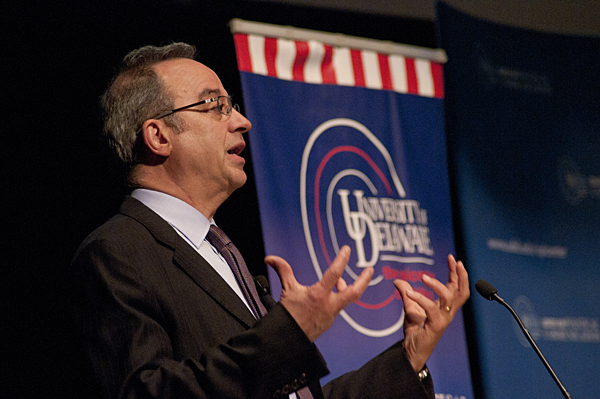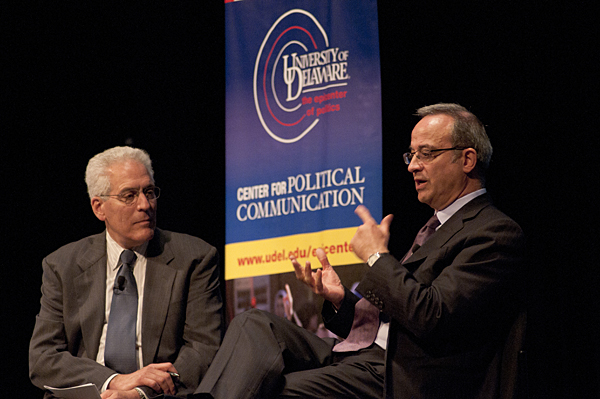Middle East perspective
Former Jordan official shares view from Arab world
3:29 p.m., April 21, 2011--On Wednesday evening, April 20, Mitchell Hall was again packed for the Center for Political Communication’s Global Agenda series. This week, Marwan Muasher, vice president for studies at the Carnegie Endowment, came to the University to speak about the view of Americans from a Middle East perspective.
He began the evening by addressing the recent reforms and protests that have been occurring since January. He spoke about perceptions in the Arab world, focusing through the lens of this time period.
Global Stories
Fulbright awards
Peace Corps plans
“What’s clear to me is this is a transformation that will affect not only the region itself but also relations with the United States and also the Arab-Israeli conflict.” The conflicts, he said he believed, were not based on economic conditions, but more about governments.
According to Muasher, there are three lessons to be learned from the recent uprisings. The first is that the argument in countries now is really not whether to reform or not, but whether to reform from above through the government, or below from the streets.
The second lesson is that the economic change in the region has not worked, without political reform.
Lastly, he said he believes the myth that having closed political systems were necessary to check Islamists from coming to power has been shattered.
He agreed that Iraq has created an even wider gap between the Arab world and the U.S., but he said there has been a change in the Arab world based on how the U.S. has acted in the different uprisings.
U.S. policy in the Middle East, he noted, has had three objectives -- stability, peace (mainly because of oil) and democratic reforms. But until January, the U.S. had always prioritized stability over reform in attempts to alter the peace process, and, as a result, none of the U.S.'s objectives have been achieved.
Stability, he said must be reached through reform -- not instead of reform. “This is a new policy that I think has a much better chance of winning the credibility of the people of the region,” he said.
When it comes to the peace process in those regions, there are two schools of thought -- one that doesn’t believe the U.S. should be concerned with the process at this time amidst protests, but the second, with which Muasher agrees, goes against that passive attitude. “In my view, if the United States does move on the issue of peace today rather than wait for later, it will do a lot in terms of improving the image that it has in the region,” he said.
Prior to his work with the endowment, Muasher was foreign minister and deputy prime minister of Jordan. His career has included work in diplomacy, development, civil society and communications.
Global Agenda 2011 is presented by the Center for Political Communication and sponsored by the Institute for Global Studies and the departments of Communication and Political Science and International Relations.
For a complete schedule of speakers in the Global Agenda 2011 series and links to podcasts of past speakers, visit the series website.
Article by Erica Cohen
Photos by Duane Perry












